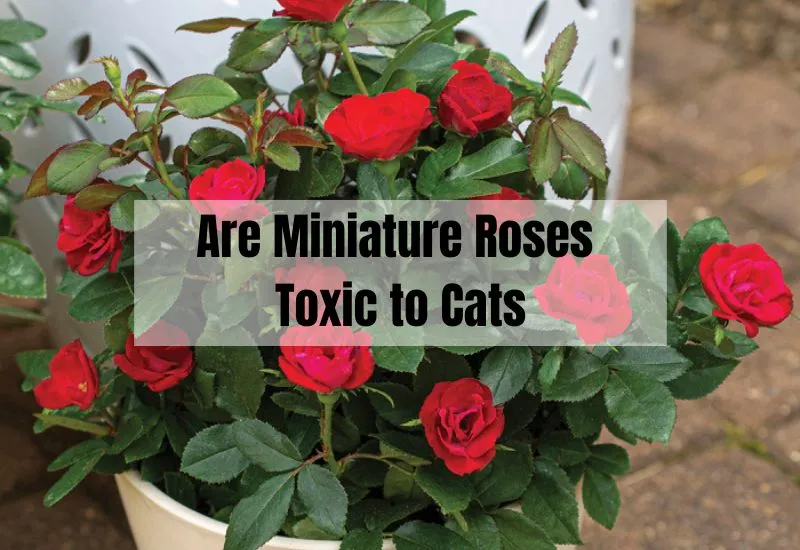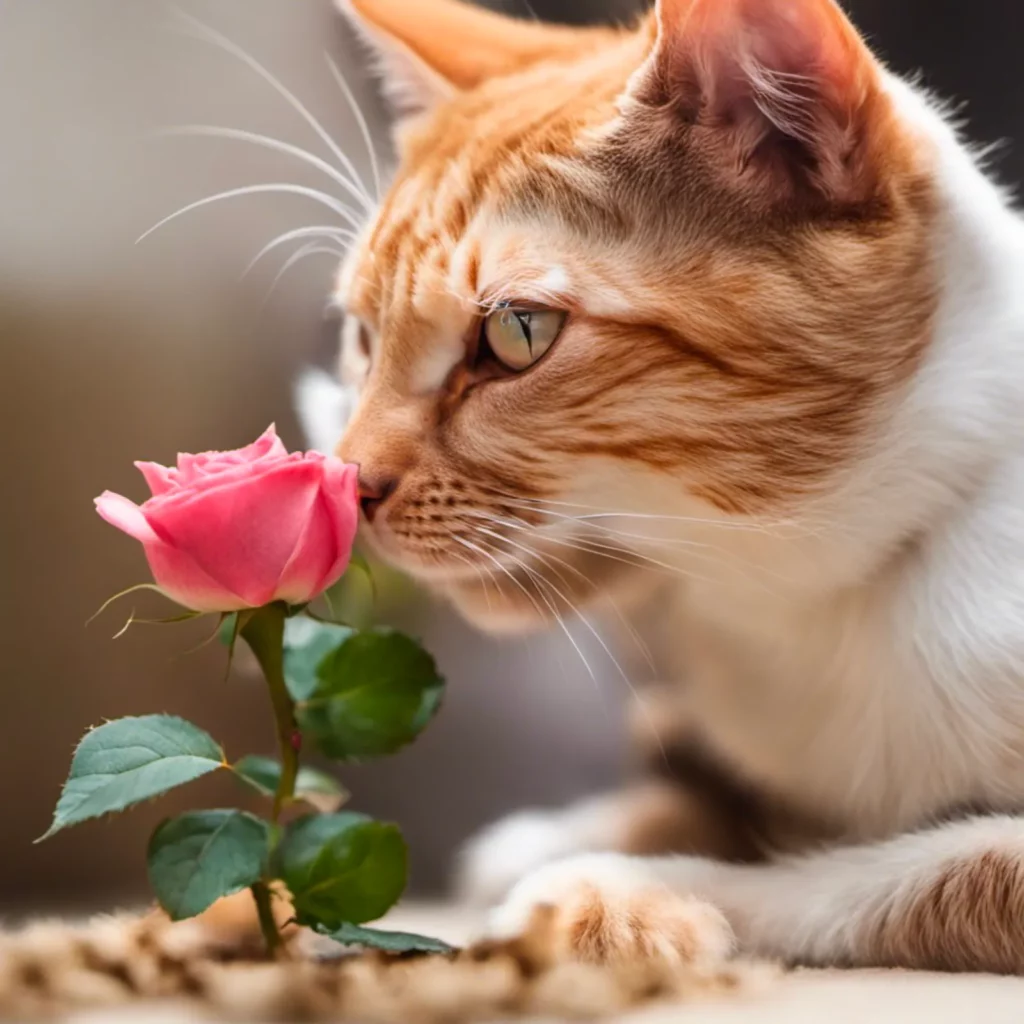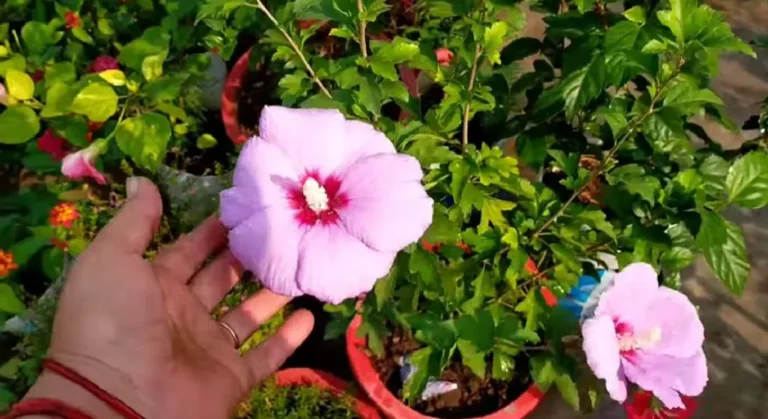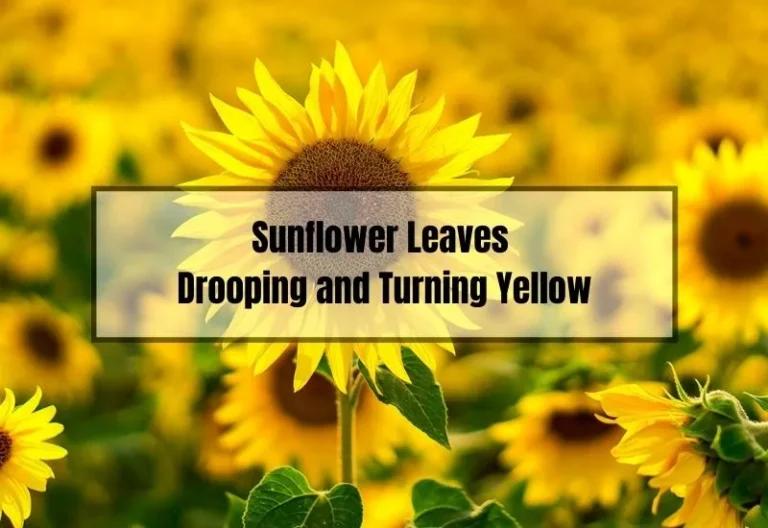Are Miniature Roses Toxic to Cats? A Comprehensive Guide
If you have a miniature rose bush in your garden and a cat at home, you might be wondering if miniature roses are toxic to cats. Miniature roses are not poisonous to cats. According to Gardening Flow, miniature rose petals, leaves, and stems are safe for cats.
However, it’s essential to be cautious because some cats may have allergic reactions or experience gastrointestinal upset if they ingest too much of the plant. To prevent exposure, consider cat-safe plants like areca palms, bamboo, and basil, which are not only decorative but also help purify the air.
Key Takeaways
- Miniature roses are not toxic to cats, but cats may still experience negative effects if they consume too much of the plant.
- Some cats may have an allergic reaction to miniature roses, and consuming too many petals or leaves may cause gastrointestinal upset.
- If you want to prevent your cat from being exposed to miniature roses, consider choosing alternative plants that are safe for cats, such as areca palms, bamboo, and basil.

Are Miniature Roses Toxic to Cats?
As a cat owner, you’re probably concerned about the safety of your feline friend. You might have heard that some plants are toxic to cats, and you’re wondering if miniature roses are among them.
The good news is that miniature roses are not toxic to cats. So, whether you have a miniature rose bush in your garden or a lovely bouquet on your table, you can breathe a sigh of relief knowing that your cat is safe.
While miniature roses are not toxic to cats, it’s still important to take some precautions to keep your cat safe. Here are some tips:
- Keep your cat away from the miniature rose bush. Although the plant is not toxic, your cat could still get hurt by the thorns.
- Don’t let your cat eat the miniature roses. While the plant is not toxic, it could still cause an upset stomach if your cat eats too much of it.
- If you have a bouquet of miniature roses, make sure it’s out of your cat’s reach. Your cat might be tempted to play with the flowers or eat them, which could be dangerous.
It’s always a good idea to be aware of what plants are toxic to cats. While miniature roses are safe, there are many plants that are toxic to cats and could cause serious harm. Here are some common plants that are toxic to cats:
| Plant Name | Toxic Part | Symptoms |
|---|---|---|
| Lily | All parts | Vomiting, loss of appetite, lethargy, kidney failure |
| Aloe Vera | Leaves | Vomiting, diarrhea, loss of appetite, depression |
| Azalea | All parts | Vomiting, diarrhea, loss of appetite, weakness, coma |
| Sago Palm | All parts | Vomiting, diarrhea, lethargy, liver failure, death |
| Tulip | Bulbs | Vomiting, diarrhea, depression, hypersalivation, cardiac abnormalities |
However, you might still have questions like “Are Roses Toxic to Cats?” in a general sense. We’ve addressed this in a detailed article you may find useful.
Effects of Miniature Roses on Cats

If you’re a cat owner who loves miniature roses, you might be wondering if these beautiful flowers can harm your furry friend. The good news is that miniature roses are not toxic to cats, according to the American Society for the Prevention of Cruelty to Animals (ASPCA). However, it’s important to note that there are still some effects that these flowers can have on your cat.
Upset Stomach
One of the most common effects of miniature roses on cats is an upset stomach. If your cat eats too many rose petals or leaves, they may experience vomiting or diarrhea.
While this is not life-threatening, it’s still important to monitor your cat and make sure they are not experiencing any other symptoms.
Allergic Reactions
Just like humans, cats can also be allergic to certain plants. While miniature roses are not toxic to cats, they can still cause allergic reactions in some felines.
Signs of an allergic reaction may include itching, redness, swelling, and even difficulty breathing. If you notice any of these symptoms in your cat, it’s important to contact your veterinarian immediately.
Pesticides
Another thing to keep in mind when it comes to miniature roses and cats is the use of pesticides. While the roses themselves are not toxic, the pesticides used to keep them healthy and free of pests can be harmful to your cat. If you have miniature roses in your garden, make sure to keep your cat away from them until the pesticides have dried.
Overall, miniature roses are not toxic to cats, but they can still have some effects on your furry friend. It’s important to monitor your cat and make sure they are not experiencing any symptoms after coming into contact with these flowers. If you have any concerns, don’t hesitate to contact your veterinarian for advice.
Preventing Cat Exposure to Miniature Roses
So, you’ve got a green thumb and love to grow miniature roses. But you’re also a cat lover and want to keep your feline friends safe. Fortunately, there are a few simple steps you can take to prevent cat exposure to miniature roses.
Firstly, it’s important to know that miniature roses are not toxic to cats, according to the ASPCA. However, it’s still best to take precautions to prevent any potential harm.
Here are some tips to help keep your cat safe:
- Keep miniature roses out of reach: Cats are curious creatures and love to explore. Keep your miniature roses in a location that is out of reach of your cat. This could mean placing them on a high shelf or in a room that your cat doesn’t have access to.
- Use deterrents: You can use natural deterrents to keep your cat away from your miniature roses. Cats dislike the smell of citrus, so you can try placing orange or lemon peels around your plants. You can also use a spray bottle filled with water to gently spray your cat if they get too close to your plants.
- Provide alternative options: Cats love to nibble on plants, so it’s a good idea to provide them with alternative options. You can grow cat grass or catnip, which are safe for cats to eat and can help satisfy their urge to nibble.
- Monitor your cat: Keep an eye on your cat when they are around your miniature roses. If you notice that they are showing interest in your plants, it’s best to move them to a safer location.
First Aid for Cats Who Have Ingested Miniature Roses
If your cat has ingested miniature roses, keep an eye on them for any signs of discomfort or illness. Though the risk of toxicity is low, it’s still important to monitor your cat and take the following steps:
- Remove any remaining rose petals, leaves, or thorns from your cat’s mouth.
- Encourage your cat to drink water, as this can help dilute any potential stomach irritants.
- Monitor your cat for any signs of gastrointestinal upset, such as vomiting or diarrhea.
When to Seek Professional Help
While miniature roses are not toxic to cats, it’s crucial to recognize when it’s necessary to seek professional help. If your cat has ingested a significant amount of roses and is showing signs of severe gastrointestinal upset or distress, it’s best to consult your veterinarian.
Additionally, if your cat has swallowed a thorn or is injured by one, seek veterinary assistance to ensure proper treatment and care.
By following these simple tips, you can help prevent cat exposure to miniature roses and keep your furry friend safe. Remember, it’s always better to be safe than sorry when it comes to your pet’s health and well-being.
Alternative Plants Safe for Cats
If you’re a cat lover and plant enthusiast, you may be wondering what other plants you can safely add to your home besides miniature roses. Fortunately, there are plenty of alternative plants that are safe for your feline friends to be around.
Spider Plant
Spider plants are a popular choice for pet owners because they are non-toxic to cats and dogs.
These plants are easy to care for, thrive in a variety of lighting conditions, and are known for their air-purifying abilities. Plus, cats love to play with the long, dangling leaves!
Boston Fern
Boston ferns are another plant that is safe for cats and dogs. These ferns are known for their lush, green foliage and are great for adding a pop of color to any room. They prefer bright, indirect light and high humidity, so be sure to mist them regularly.
Bamboo Palm
Bamboo palms are a great choice for pet owners because they are non-toxic to cats and dogs and are known for their air-purifying abilities.
These palms thrive in bright, indirect light and prefer to be kept moist. They can grow quite tall, so be sure to give them plenty of space to grow.
African Violet
African violets are a beautiful and safe choice for pet owners. These plants are known for their vibrant, colorful flowers and are easy to care for. They prefer bright, indirect light and well-draining soil. Plus, they add a pop of color to any room!
Catnip
If you’re looking for a plant that your cat will love, look no further than catnip. Catnip is safe for cats to eat and is known for its calming effects. You can grow catnip indoors or outdoors and your cat will love playing with and nibbling on the leaves.
Adding plants to your home is a great way to improve air quality and create a peaceful, relaxing environment. By choosing plants that are safe for your feline friends, you can enjoy the benefits of indoor gardening without worrying about your cat’s safety.
Frequently Asked Questions (FAQs)
Is baby’s breath poisonous to cats?
No, baby’s breath is not toxic to cats. However, if your cat ingests a large amount of the plant, it may cause mild stomach upset, vomiting, or diarrhea.
Can cats eat rose petals?
Yes, cats can eat rose petals, as they are not toxic. However, excessive consumption may lead to mild stomach upset, so it’s essential to monitor your cat and prevent them from overindulging.
What precautions should I take with roses around my cats?
To protect your cat from any potential harm, remove thorns from roses, place roses out of your cat’s reach, and consider using deterrent sprays to discourage them from chewing on the plants.
Conclusion
As cat guardians, it’s our responsibility to ensure our feline friends are safe and healthy. While miniature roses and other rose species are not toxic to cats, it’s essential to remove thorns and keep an eye on your cat to prevent any injury or discomfort.
Furthermore, it’s crucial to remain aware of other common plants that can be toxic to cats, such as lilies, carnations, and chrysanthemums, and take the necessary precautions to keep your cat safe.
By doing so, you’ll create a happy and secure environment for your beloved feline friend.
Related Posts:
- Growing Miniature Roses Outdoors: Your Complete Guide
- Miniature Indoor Rose Problems? A Comprehensive Guide to Troubleshooting
- How to Keep Miniature Roses Alive: A Comprehensive Guide
- How to Save Dying Miniature Roses: A Comprehensive Guide
- Maximizing Your Rose Garden: A Guide to Using Coffee Grounds and Eggshells






